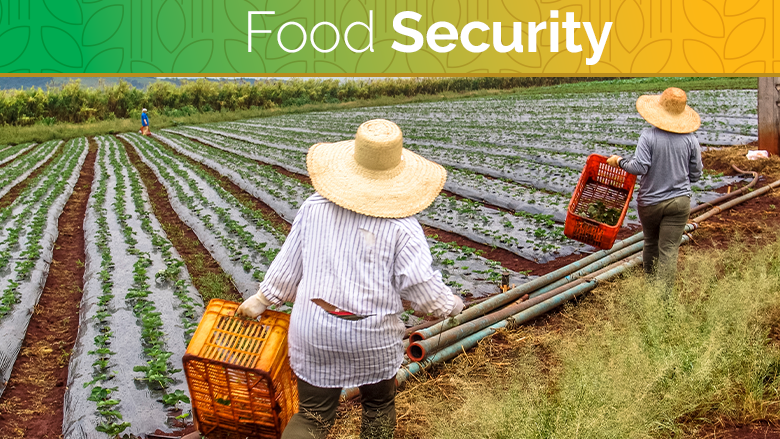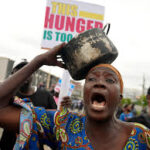Food Security in Africa: Challenges and Future Solutions

Food security—having consistent access to sufficient, safe, and nutritious food—is one of the biggest challenges Africa faces today. Despite the continent’s vast agricultural potential, millions of Africans remain food insecure. According to the FAO, over 280 million people in Africa were undernourished in 2022, and climate change threatens to push even more families into hunger. Solving food insecurity is not just about increasing food supply—it requires tackling poverty, improving food systems, and empowering communities.
The Current State of Food Security
Africa produces a wide variety of crops, from maize and millet to cassava and beans. Yet many households cannot afford or access enough food daily. Food insecurity is particularly severe in sub-Saharan Africa, where reliance on rain-fed agriculture and limited storage infrastructure make communities vulnerable to shocks such as drought, floods, and market fluctuations.
Urbanization also shifts diets toward imported and processed foods, which are often more expensive and less nutritious than traditional staples. This combination leads to malnutrition, stunting in children, and rising cases of diet-related diseases.
Major Challenges Facing Food Security
-
Climate Change
Extreme weather patterns—droughts in the Sahel, floods in East Africa, and locust invasions—reduce crop yields and threaten livestock. -
Poverty
Even when food is available, millions of families cannot afford it. Poverty drives both hunger and poor diet quality. -
Conflict and Displacement
Wars and political instability disrupt farming, markets, and distribution. Refugee communities are especially vulnerable to hunger. -
Post-Harvest Losses
Nearly one-third of food grown in Africa is lost due to poor storage, pests, and transportation gaps. -
Population Growth
Africa’s population is expected to double by 2050, creating pressure to produce more food sustainably.
The Human Impact
Food insecurity goes beyond hunger—it affects health, education, and economic growth. Malnourished children struggle to learn in school, while adults facing hunger are less productive at work. This creates a cycle of poverty that slows national development. In addition, poor diets contribute to the double burden of malnutrition—undernutrition in rural areas and obesity in urban populations.
Future Solutions for Food Security
Addressing food insecurity requires long-term investment and innovation:
-
Climate-Smart Agriculture
Drought-resistant crops, improved irrigation, and sustainable farming techniques can help farmers adapt to climate change. -
Boosting Local Food Production
Encouraging smallholder farmers with access to seeds, credit, and markets will strengthen local supply chains. -
Reducing Food Waste
Building better storage facilities and transport systems ensures harvested crops reach consumers before spoiling. -
Nutrition-Sensitive Policies
Governments should promote diverse, nutrient-rich crops like millet, beans, and leafy greens instead of relying heavily on maize or rice. -
Technology and Innovation
Mobile apps and digital platforms can connect farmers to markets, provide weather forecasts, and share farming advice. -
Empowering Women Farmers
Women make up nearly half of Africa’s agricultural workforce but often lack equal access to land and resources. Supporting them could significantly boost food production. -
Regional and International Cooperation
Cross-border trade agreements and partnerships with international organizations can stabilize food supplies during crises.
Inspiring Progress
Several African countries are already taking bold steps. Rwanda has invested heavily in climate-smart agriculture, improving yields and reducing hunger. Nigeria’s agricultural diversification programs are increasing cassava and rice production. Meanwhile, community-driven urban farming projects in Kenya and South Africa are helping city dwellers grow their own food.
Conclusion
Food security in Africa is both a challenge and an opportunity. While climate change, poverty, and population growth threaten progress, innovative solutions and community-driven strategies can transform Africa into a continent of abundance. By investing in sustainable farming, reducing food waste, and empowering smallholder farmers, Africa can build resilient food systems that feed not only today’s families but also future generations.
Written by Fawzi Rufai, Medically Reviewed by Sesan Kareem



